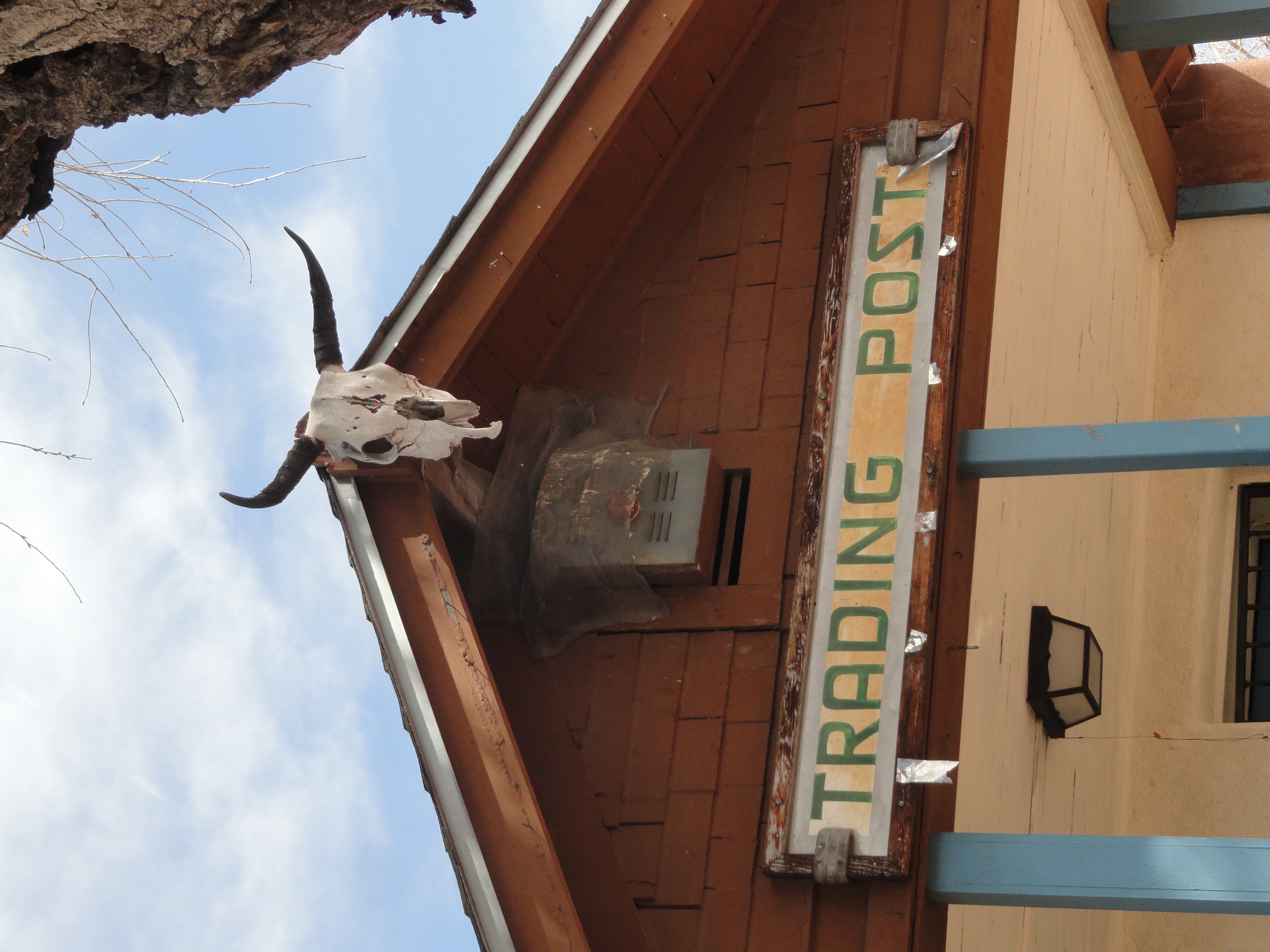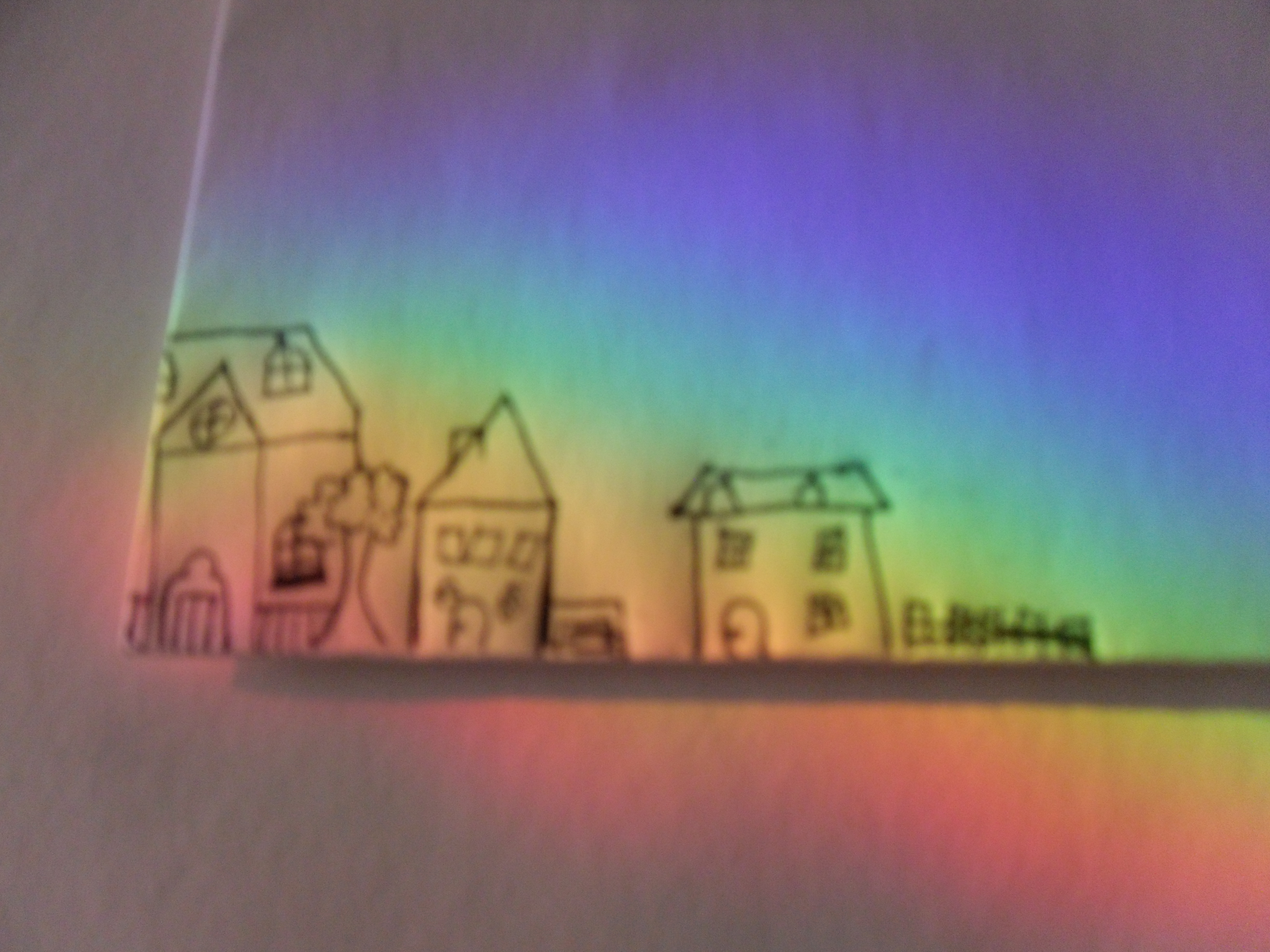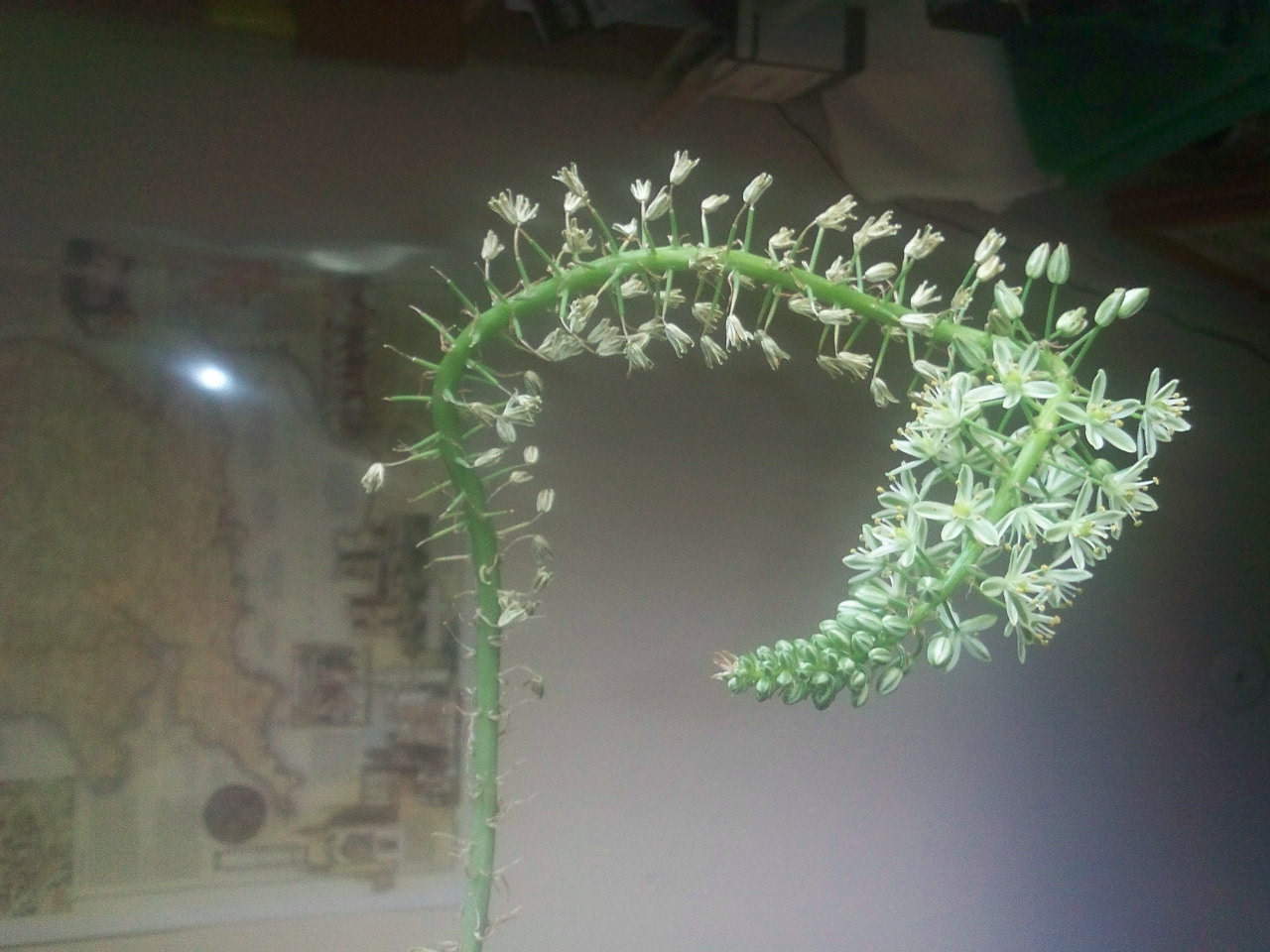Facts are all around us, all the time. The difference between school and unschooling is that the facts are not always stated as facts, they are simply a part of life. The facts are not simply "known", they are felt and lived in. I think most unschoolers know as many, or more, facts as schooled kids, they just don't know them AS facts. They know them as part of life.—Lyle Perry
unschooling.info archive, bottom
photo by Rosie Moon
Friday, July 5, 2024
Part of life? Fact.
Tuesday, March 15, 2022
Quoting "science"
Facts change.
The text aboved was part of a rant. Sometimes when I rant, it's fun to read later, but the context was (as usual) unschooling, within the world of homeschooling.
Thursday, June 14, 2012
As big as the world

Joyce Fetteroll wrote:
If you look at school and curriculum objectively rather than the fonts of knowledge they're touted to be, it's easier to see how hugely limiting they are.
Kids are stuck inside memorizing facts about life and the world from someone predigested facts about it.
Unschooled kids are out in the world learning as humans are designed to learn: by gathering in what they observe and pulling understanding from it.
Schooled kids lives are limited. Unschooled kids lives are as big as the world around them. And with the internet and TV, that's practically infinite!
photo by Sandra Dodd
Friday, January 18, 2019
FACT

SandraDodd.com/facts
photo by Jo Isaac
Just for fun, the story of a time when arguing facts was a Bad Idea.
Sunday, July 21, 2024
Learning the OTHER things
This week Andy has figured out money, and it's happened in spurts all week...
And that's how they reach the point of 'wanting to learn' — when it matters to them, not when it matters to you or anyone else.
at SandraDodd.com/math/money
photo by Cátia Maciel
Friday, July 26, 2024
Philosophy and priority
It has to do with philosophy and priority. I think the way I discuss whether one of my teens can go to a movie or not under the circumstances of the moment is as true and deep a life-building experience as when he asks me what squares and square roots are about.
| 2024 note: Truer and deeper than facts that can be discovered anywhere, anytime. Looking back, I see its importance more clearly. |
One day we had from seven to seventeen kids here, in various combinations and not all at once. It was a madhouse. Seven was my low count because there are still seven here at the moment. At one point two were gone and were coming back, one was half-expected (and did show up) and Marty wanted to go to the dollar movies to see "School of Rock" with a subset of the day's count. Holly didn't want to go; her guest from England did. Kirby half wanted to go; the girls coming back wanted to see him particularly. So the discussion with Marty involved me helping him review the schedule, the logistics of which and how many cars, did he have cash, could he ask Kirby to stay, could we offer another trip to that theater the next day for those who'd missed it today, etc. I could have said "yes" or "no" without detail, but it was important to me for it to be important to Marty to learn how to make those decisions. Lots of factors.
That's part of my personal style of radical unschooling.
| Today: The day this is scheduled to go out, Keith and I will have three grandkids from 8:00 to 1:00, and then the other two at night. There are logistics involved. The oldest grandchild is being paid to come back and help at night. Drivers, food, activities, re-staging between... Same goals as in the 2003 story above—fun, peace, contentment. |
SandraDodd.com/unschool/radical
photo by Kim Jew Studios
in those days, but not that day
Thursday, May 3, 2018
History's disorderly conduct

History can't be learned "in order," because it's never going to be orderly. It doesn't even happen in order, because often facts aren't discovered until years after incidents occur, and so the history of them unfolds and is clarified and expanded all the time. People knew zip about Pompeii until 1700-and-some years after it was buried. Someday people might know more about Amelia Earhart's disappearance or the assassination of JFK than they do now, after all who knew them personally will have been long dead.
photo by Lisa Jonick

Saturday, November 2, 2024
Learning by looking, doing, exploring
It's good to know that it's not necessary to totally understand everything you read (or listen to) the first time through. I think that's one of the misconceptions people get from school's "read it and answer the questions" format. It's okay to skim through something the first time and just get a general idea, then, if you're still interested, go back and read for more detail later - maybe after reading or hearing something else, first, that clarifies those details.
But that's learning in the sense of "taking in information" - and learning is more than that. Learning also comes from doing things, exploring objects and processes, places and ideas. Much as I like storing up facts like a magpie, I do most of my learning by taking things apart and putting them back together. If I have a question, I'm as likely to look for a person to show me what I need as I am to look for a book. I *can* figure things out from books, but often I can learn the same thing more effectively by watching someone else.
photo by Roya Dedeaux
Monday, June 25, 2018
Artsy imaginings

Art, arrangements, sculpture—any art—is based on a vision or a mental image. Viewers interpret that, and respond, sometimes with thought, words, or responsorial art of some sort. Then someone will see that art, or comment, or review, and reference it somehow.
These are connections, sometimes wordless, and that is learning, even when it's far from facts and figures.
Art about Art
photo by Heather Booth
__
Tuesday, February 28, 2023
Trivia
Is that worth knowing? Maybe not, but I think it's interesting.
Where I live, in the U.S., horses don't have names on them, except at Disneyland, pretty much. The "King Arthur Carrousel" in Disneyland was made in Canada, over 100 years ago—before Disneyland. I don't know whether the Canadian builders used two "r"s in the name, or if Walt Disney liked the alternative spelling. If you think any of this is interesting, you can read more here, about the one at Disneyland.
I took the photo above, at a fair in England. Lol is a nickname for Laurence, there (and old guys are named Laurence, not so many young kids), so that horse was named after someone who was called "Lol" instead of "Larry," and not named after laughing out loud.
How many small facts and connections can one person hold? I don't think there's a limit.
It's easier to learn a thing if you already know something else kind of like it. Connections!
photo by Sandra Dodd
Tuesday, July 30, 2024
Natural instinct and sensible logic

information on a situation in which
Twinkies are better food than alfalfa sprouts,
and when lettuce might be very dangerous
Read a little, try a little,
wait a while, watch.
Photo by Sandra Dodd of bell peppers (which I don't much like) stuffed with things lots of other people don't like or can't eat. I didn't do it on purpose, the recipe was just all beef, onion, garlic, tomatoes, mushrooms, pine nuts...
Friday, June 9, 2023
Seeing gifts
We just watched a documentary called Lost Castles of England. My 10 year old loves Star Trek and so he was particularly thrilled that it was narrated by Leonard Nimoy. 🙂
We paused - oh - probably at least 25 times during the documentary to look up things ranging from "When was the Bronze Age?" and "What exactly is Stonehenge anyway?" to "Who were the Normans?" and "How exactly big is England?" and "They killed the garrison... What's a garrison??"
We also paused a bunch of times as he described how he's going to be getting up early tomorrow to start work in Minecraft right away - he plans to build a motte-and-bailey timber castle, as described in the documentary. He asked me to keep the documentary in our Netflix queue so he can refer to it as needed for the particulars.
When the show ended, he stood up from the couch and proclaimed "That was AWESOME. And the whole time it was Spock. Spock just GIVING you interesting history stuff!!!"
It hit me right away that he didn't say "Spock teaching you history" or "A show teaching you history" or anything about teaching at all. He doesn't see things in terms of Being Taught. In his mind, he received a gift of new knowledge and facts this evening. A gift given by Spock, which made it all the better. 🙂
Note from Sandra:
Colleen's son, Robbie, is twenty years old, as I share this. The story above has been on the page about "learning" for a long time, quietly helping others.
photo by Sandra Dodd
Wednesday, June 21, 2017
Ideas and trivia

Learning isn't in fancy books or computer games, it all happens in the ideas children have, in the trivial facts they fit together to come up with their view of the world—past present and future. You don't need a lesson or a unit to show a child what's wonderful about woodgrain, ice crystals on the windshield, or birdsongs. Five seconds worth of pointing and saying "Look, these trees were not native to North America" might possibly lead to an hour long discussion, or a lifelong fascination. Bringing something interesting home, browsing in an antique shop, listening to new music on instruments you've never heard—all those build neural pathways and give you a chance to be together in a special place.
photo by Holly Dodd
of art by Holly Dodd
which happened to catch a rainbow

Tuesday, February 8, 2022
Goop, fire, snowballs
When one person says "I like science" and another says "I don't like science," I remember school science textbooks that had geology, astronomy, chemistry, botany, biology, agriculture and physics all in one book.
photo by Sandra Dodd
Thursday, July 18, 2013
Wheelbarrows
No matter what topic you choose, what collectable objects you favor or trivia that appeals to you, following that interest will lead you to many "facts" and "truths." Trivia perhaps, but enough trivia will create a detailed model of the universe.
photo by Sandra Dodd
Friday, December 16, 2011
A million-piece puzzle
The way schools get academics into kids goes against how we're naturally wired to learn. It's very hard for humans to memorize someone else's understanding of the world and then make sense of it. That's why it takes so long in school. It's why kids can "pass" classes and yet still have little practical understanding of what's been pushed in their heads.
 |
Whereas the kids in school have been told what pieces to put where and how to put them in, to drop that interesting piece because it's not part of the curriculum. By the time they hit middle school most are ready to slam the door on the puzzle and have nothing more to do with it.
photo by Sandra Dodd, and it's a link

Tuesday, October 14, 2025
Instead of schoolish ideas...
instead of "Instill knowledge" :
Trust that learning is natural; trust that children are interested in lifeinstead of "Follow a schedule" :
Flow with the moment, with the inspirationinstead of "Memorize facts" :
Understand stories
photo by Jo Isaac
Wednesday, October 27, 2010
History is infinite.

History is infinite, that's for sure. You've gotta start somewhere, and pretty much it doesn't matter where you start because it's all connected, like a universe-sized dot-to-dot you could never finish but you started when you were born. Or maybe before...
History can't be learned "in order," because it's never going to be orderly. It doesn't even happen in order, because often facts aren't discovered until years after incidents occur, and so the history of them unfolds and is clarified and expanded all the time. People knew zip about Pompeii until 1700-and-some years after it was buried. Someday people might know more about Amelia Earhart's disappearance or the assassination of JFK than they do now, after all who knew them personally will have been long dead.
photo of flower and map in my kitchen

Sunday, December 1, 2019
Preserve some instincts

information on a situation in which
Twinkies are better food than alfalfa sprouts,
and when lettuce might be very dangerous
Photo by Sandra Dodd of bell peppers (which I don't much like) stuffed with things lots of other people don't like or can't eat. I didn't do it on purpose, the recipe was just all beef, onion, garlic, tomatoes, mushrooms, pine nuts...
Wednesday, December 15, 2010
Learning at home, and in other special places

Learning isn't in fancy books or computer games, it all happens in the ideas children have, in the trivial facts they fit together to come up with their view of the world—past present and future. You don't need a lesson or a unit to show a child what's wonderful about woodgrain, ice crystals on the windshield, or birdsongs. Five seconds worth of pointing and saying "Look, these trees were not native to North America" might possibly lead to an hour long discussion, or a lifelong fascination. Bringing something interesting home, browsing in an antique shop, listening to new music on instruments you've never heard—all those build neural pathways and give you a chance to be together in a special place.
photo by Holly Dodd
of line art by Holly Dodd
which happened to catch a rainbow










